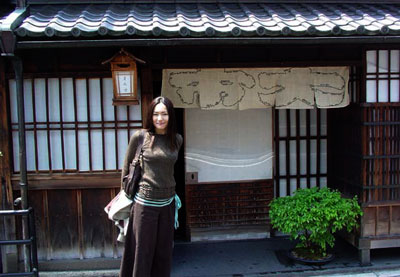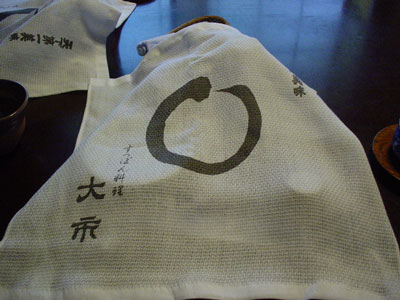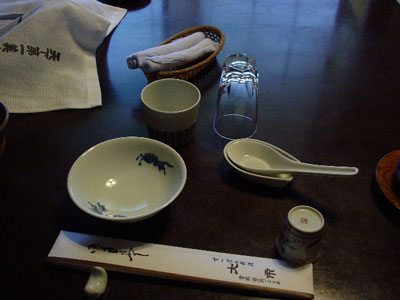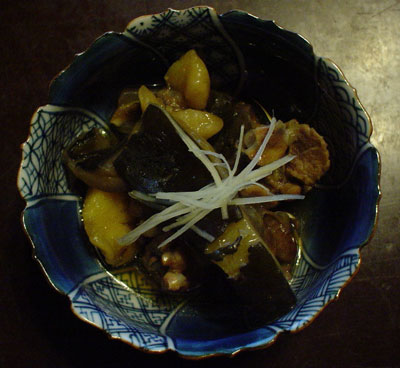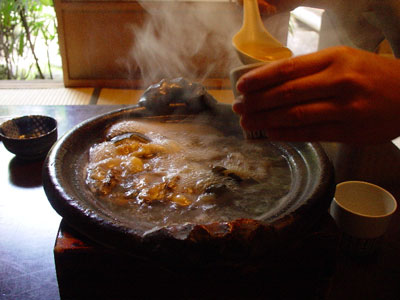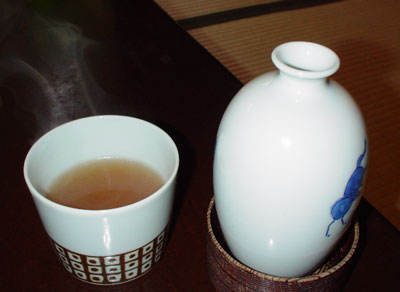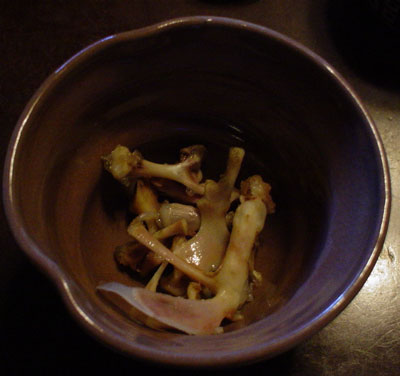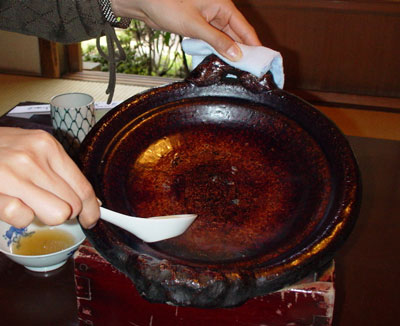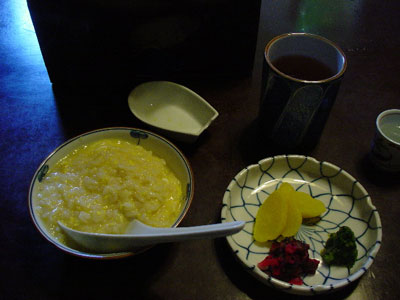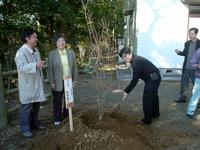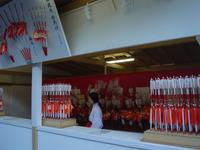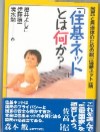I was born in Kyoto and Kyoto is one of my favorite cities. It's rich with culture and nuance. One of the hardest things for non-Kyoto people to navigate is the many layers of politeness. Everyone smiles at you and treats you very nicely. However, it's quite dangerous to take everything at face value. The people of Kyoto often tell you what they want you to do, veiled in a nice-sounding statement or request, which is hard for non-Kyoto people to understand. Sometimes, if you take the comment or offer at face value, you will be shunned without even knowing it.
I saw some wonderful stickers on Twitter that show what Kyoto people might say, "tatemae," and the reverse side that shows what they really mean, "honne."
I asked permission to translate the stickers so non-Japanese people could understand them. However, upon translating them, I realized that the politeness of the "tatemae" and the rudeness of the "honne" doesn't really come through in English, but I think you'll get the gist. And Rie's face says it all.
Enjoy.
Ikezu stickers of Kyoto people with a hidden side
The following text was translated from the original post in Japanese.

If someone says, "Do you want some pickles?" to you in Kyoto, it means "hurry up and leave."
This kind of high-context communication that most people would never notice is called "ikezu."
This "ikezu culture" has long been recognized as uniquely Kyoto, but we have noticed that it has not yet been converted into a tourism resource.
Just as Osaka has turned the prefectural stereotype of comedians into a tourism resource, Kyoto's "ikezu" should also become a tourism resource.
With this in mind, we created a new souvenir of Kyoto, the "Kyoto-people-with-hidden-meaning ikezu sticker."
This product takes advantage of the characteristic of "ikezu" to "convey in a roundabout way what is difficult to say". It allows Kyoto people to convey their real feelings to those outside of Kyoto.
As the name suggests, this product has a double-sided structure. The front side depicts a polite but somewhat mean-spirited "ikezu" front, and the back side reveals the hidden true feelings of the Kyoto people.
The front of the card shows the "tatemae" which is the polite roundabout words.
The back side has "honne" which is what the words actually mean.
Product Lineup

We have created four types of products for each "hard-to-express" requests that occur in various situations at home so that people from outside of Kyoto can take them home and use them.
Toilet section: When you want to tell someone, "Please don't pee standing up."

Front text: "My toilet seat may not be the most comfortable, but if you don't mind, please try it."

Back text: "Don't do it standing up, okay?"
Entrance: When you want to tell someone, "Please don't come to my house in dirty clothes."

Front text: "How nice to see you. Did you go to Lake Biwa?"

Back text: "You come here looking dirty! Go wash everything in the Kamogawa River."
Dining table version: When you want to tell someone, "Please don't make sounds while you eat."

Front text: "You know what? It's okay to eat buckwheat noodles with a slurping sound."

Back text: "Kucha kucha kucha you're noisy!"
Post section: When you want to tell people, "Please don't put unnecessary flyers in the mailbox."

Front text: "Sorry, we only have a small mailbox. Thank you, Mr. Habakari."

Back text: "Don't put those stupid flyers in here. They're a nuisance."
Credits
Translated with permission. Original
Planning and production: Not.inc, CHAHANG
Model: Rie Onishi (Onishi Tsune Shoten)
Photographer: Hanako Kimura
Printing: Shubisha Ltd.
Kyoto Kotoba supervisor: Hiroshige Nishimura
PR Advisor: Kota Shirai (frame)
Ikezu Roundtable: Rie Onishi (Onishi Tsune Shoten), Maho Nakajima (Saga Arashiyama Bunkakan), Rokue Nakamachi, Futagozanomaro, Yasuyo Mitani (Okini-no-Utsuwa), Yukifumi Mitani (Okini-no-Utsuwa), Miepparina Kyoto People bot, Masaki Yamashita (Shubisha), Satoshi Yoshikawa (Kyoto Love. Kyoto), Guts (Alpha-) STATION)
![Joi Ito [logo]](/_site/img/joi-ito-logo-300.png)




























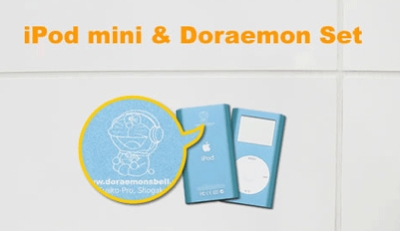














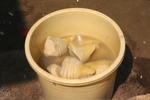




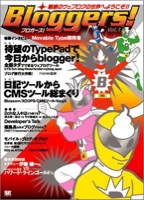
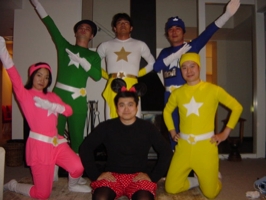






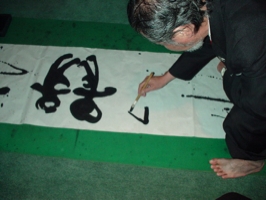
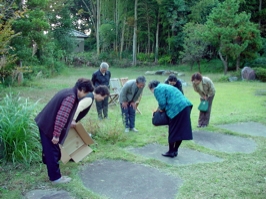

 Washlets are the Japanese version of the bidet. They spray a jet of water that can be adjusted in pressure, angle, temperature. The fancy ones have motion sensors to open the seat and flush automatically. Some create a smell curtain with air jets and filters, others have remote controls, seat heaters, etc. They range in price from a few hundred dollars to thousands of dollars. You really have to try one to understand the appeal, but having a focused warm jet of water is much different than a bidet.
During a panel discussion the other day, professor Takeuchi explained that washlets have now reached a 50% market penetration in Japanese households. This is amazing really. So the question was, with all of the talk about culture being Japan's next big export, will washlets be the next big Japanese export?
Toto, the Japanese toilet company has an
Washlets are the Japanese version of the bidet. They spray a jet of water that can be adjusted in pressure, angle, temperature. The fancy ones have motion sensors to open the seat and flush automatically. Some create a smell curtain with air jets and filters, others have remote controls, seat heaters, etc. They range in price from a few hundred dollars to thousands of dollars. You really have to try one to understand the appeal, but having a focused warm jet of water is much different than a bidet.
During a panel discussion the other day, professor Takeuchi explained that washlets have now reached a 50% market penetration in Japanese households. This is amazing really. So the question was, with all of the talk about culture being Japan's next big export, will washlets be the next big Japanese export?
Toto, the Japanese toilet company has an 